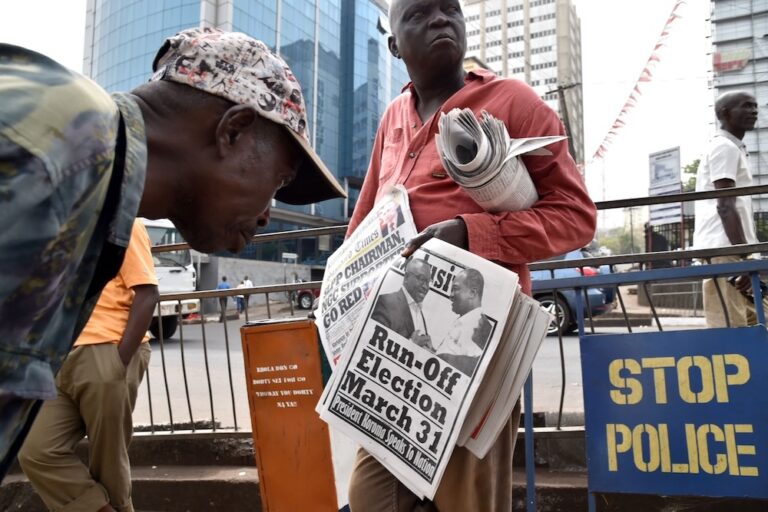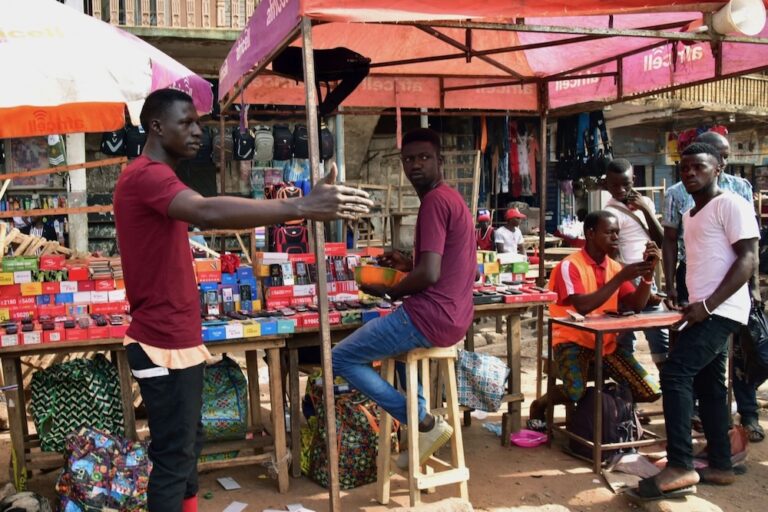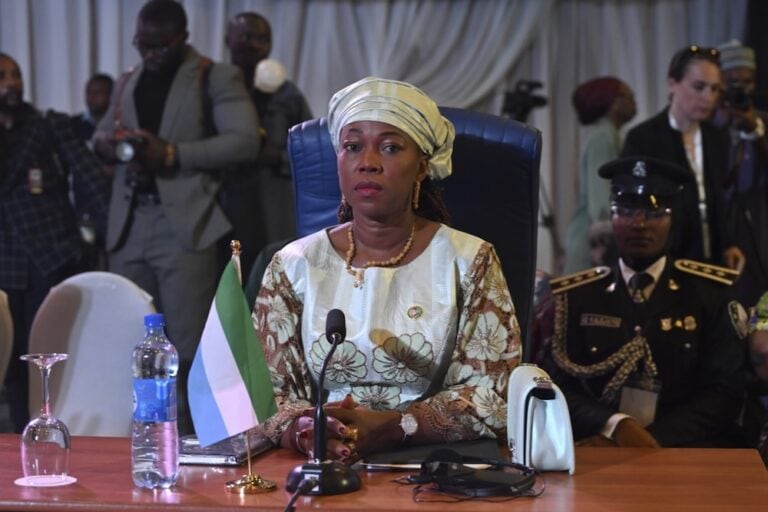(CPJ/IFEX) – CPJ is welcoming the release from jail, on the weekend of 31 July 1999, of four journalists who were imprisoned on charges of treason in August 1998. **Updates IFEX alerts of 29 July 1999, 20 September, 27 August, 25 August, 14 April and 1 April 1998** The four are Jipu Felix George, Dennis […]
(CPJ/IFEX) – CPJ is welcoming the release from jail, on the weekend of 31
July 1999, of four journalists who were imprisoned on charges of treason in
August 1998.
**Updates IFEX alerts of 29 July 1999, 20 September, 27 August, 25 August,
14 April and 1 April 1998**
The four are Jipu Felix George, Dennis Smith, Mildred Hanciles – all
employees of Sierra Leone State Broadcasting Service (SLBS) – and Ibrahim
Kargbo, editor-in-chief of the “New Citizen” newspaper. The four journalists
were among a total of ninety-eight former officials and alleged
collaborators of the Armed Forces Revolutionary Council (AFRC), whose
release from jail was recently ordered by President Ahmad Tejan Kabbah under
the terms of the Lome peace agreement. This accord, signed on 7 July by
President Kabbah’s government and the Revolutionary United Front (RUF), is a
welcome step toward peace and recovery after eight years of civil war in
Sierra Leone.
At the same time, many of CPJ’s colleagues in Freetown report that they
continue to be threatened and harassed simply for doing their jobs as
journalists. Most of the threats apparently come from former AFRC and RUF
combatants (many of whom are still armed) and their collaborators, in
retaliation for news reports perceived as unsympathetic to them over the
past two years, since the first AFRC/ RUF military coup of May 1997. Some
journalists have received death threats, even since the signing of the peace
agreement, and some are forced to change houses daily for fear of being
“visited” at night.
In April 1996, when President Kabbah became the first democratically elected
president of Sierra Leone in almost thirty years, he acknowledged that
properly functioning independent media are a vital component of any
democratic society. His current Minister of Information, Julius Spencer, was
promoting press freedom actively at that time, as part of the
non-governmental Campaign for Good Governance in Freetown.
Yet between January and April 1999, at least eight journalists were killed
in Freetown and one died in prison, and several media offices were
destroyed. This violence marks an all-time low for press freedom in Sierra
Leone.
Recommended Action
Send appeals to authorities:
by all parties to the conflict
Sierra Leone will be immense
government – including
those from the RUF – to do everything possible to ensure that journalists in
Sierra Leone are free to practice their profession without fear of reprisal
reconciliation, that independent media in Sierra Leone will be given every
encouragement, and that the internationally-recognised right of press
freedom will finally become a reality there
Appeals To
President Ahmad Tejan Kabbah
Presidential Lodge
Hill Station, Freetown
Sierra Leone
Please copy appeals to the source if possible.


